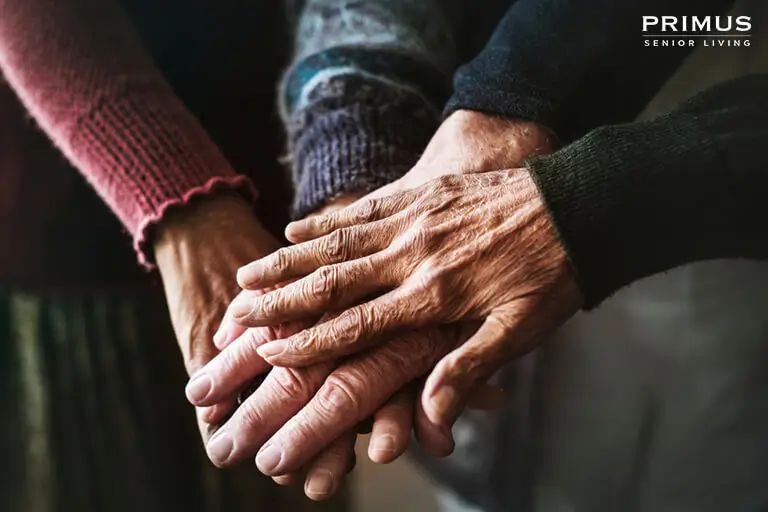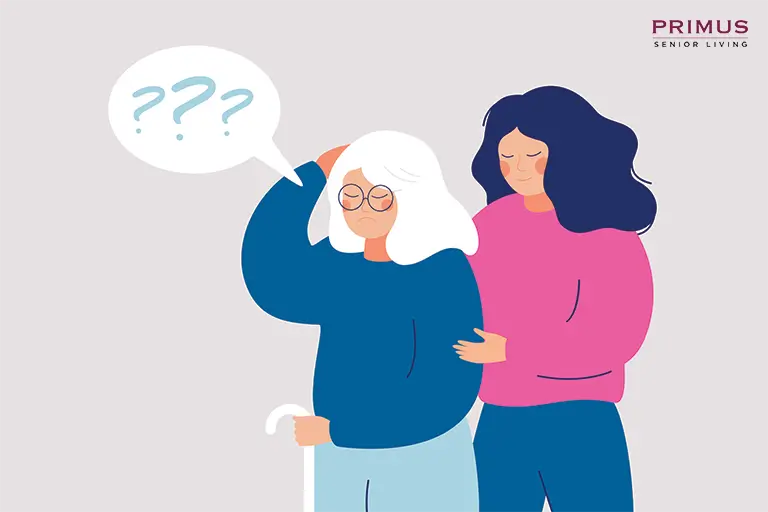Dementia is a condition that is usually chronic or progressive in nature that deteriorates cognitive function beyond what might be expected from normal ageing. It affects memory, thinking, orientation, comprehension, calculation, learning capacity, language and judgement. However, dementia does not affect the consciousness of a person. Deterioration in emotional control, social behaviour or motivation accompanies and occasionally precedes impairment in cognitive function. Dementia can be the result of a variety of diseases and injuries that primarily or secondarily affect the brain, like Alzheimer’s disease or stroke.
Identifying Early Signs of Dementia and Available Treatments
According to the World Health Organisation (WHO), Dementia is one of the major causes of disability and dependency among older people worldwide. There is often a lack of understanding when it comes to understanding Dementia. There is a social stigma attached to it which makes it difficult to treat and diagnose it.
Dementia ranges in severity from the mildest stage to the most severe stage. In the mildest stage it just begins to affect a person’s functioning and gradually deteriorates to the severe stage where the patient has to rely completely on others for basic activities of living. Dementia affects each person in a different way. The symptoms of Dementia include forgetfulness, losing track of time, and becoming lost in familiar places in the early stages.
In the progressive stages the symptoms become clearer and more restricting. The affected individuals show signs of forgetting recent events and names of people, getting lost at home, having increasing difficulty with communication, experiencing behaviour changes, including wandering and repeated questioning. They need extensive help with personal care. The late stage is characterised by near total dependence and inactivity.
Some of the late stages of Dementia include becoming unaware of the time and place, having difficulty recognising relatives and friends, having an increasing need for assisted self-care, having difficulty walking and experiencing behavioural changes that may escalate and include aggression.
Some of the major forms of Dementia include Alzheimer’s, Vascular Dementia and dementia with Lewy bodies. They often coexist as the boundaries between the various forms of dementia are indistinct. Some of the medications used to treat Dementia are, Cholinesterase inhibitors, memantine and other medications that control depression, sleep disturbances, hallucinations, parkinsonism and agitation. The therapies used to treat dementia include:
Occupational therapy: In occupational therapy, the therapist helps you to make your home safer and teach you coping behaviours. This will help reduce accidents such as falls. It will help with behaviour management and preparation for dementia progression.
Modifying the Environment: It helps with making the surrounding comfortable for the dementia patient by reducing cluttering noises, hiding objects that can threaten safety, and putting up monitoring systems to track the individual.
Simplifying tasks: It helps with breaking tasks into easier steps and focus on success. People with dementia can also be helped with structure and routine which reduces confusion in people.
Dementia can be overwhelming for families dealing with it. Physical, emotional and financial pressure can cause great distress among families and loved ones. Therefore, one should work closely with the doctors, therapists and caregivers so that they can effectively deal with dementia and uphold the patient’s choices and freedom.
With the right support and the right diagnosis, treating dementia is becoming possible. At Primus, our teams constantly monitor our senior residents to ensure that they are healthy and safe.
You may also like

Know How Retirement Homes Are Helping The Elderly Live A Happy And Fulfilling Life
The stigma surrounding old age homes have dissipated and have given way to the modern concept of retirement homes. As opposed to old age homes that elders tend to avoid like the plague, new age retirement homes are looked at with interest and much expectation. Nuclear homes and families are the norm now and these have a limitation on the availability of both time and space. The busy youngsters are not able to effectively care for their parent. This leads to a solitary life, even when the elders are staying with their kids. Today's working population is quite mobile preferring to move cities and even countries in search of better opportunities. Elders, on the other hand, do not prefer moving to a new city or place. Even if they do, they are looking at countrysides and suburban areas without the pollution and hectic schedules.
READ MORE
The Festive Spirit At Primus: What Is The Importance Of Celebrating Them
The aroma of freshly prepared sweets and snacks, the scent of flowers and pretty rangoli designs at the entrance, and you know the festive season is around the corner. Every house is decorated with streamers and lights, and there is so much festive cheer in the air. There is nobody who doesnot enjoy the festivals, and the elderly are no different. That's why Primus Senior Living aims at celebrating every festival with great pomp and show. Primus Senior Living celebrates 20+ Indian festivals across all the Primus homes. Curious why is it important to celebrate the festive spirit with seniors? Continue reading to know wh
READ MORE

Leave a Comment